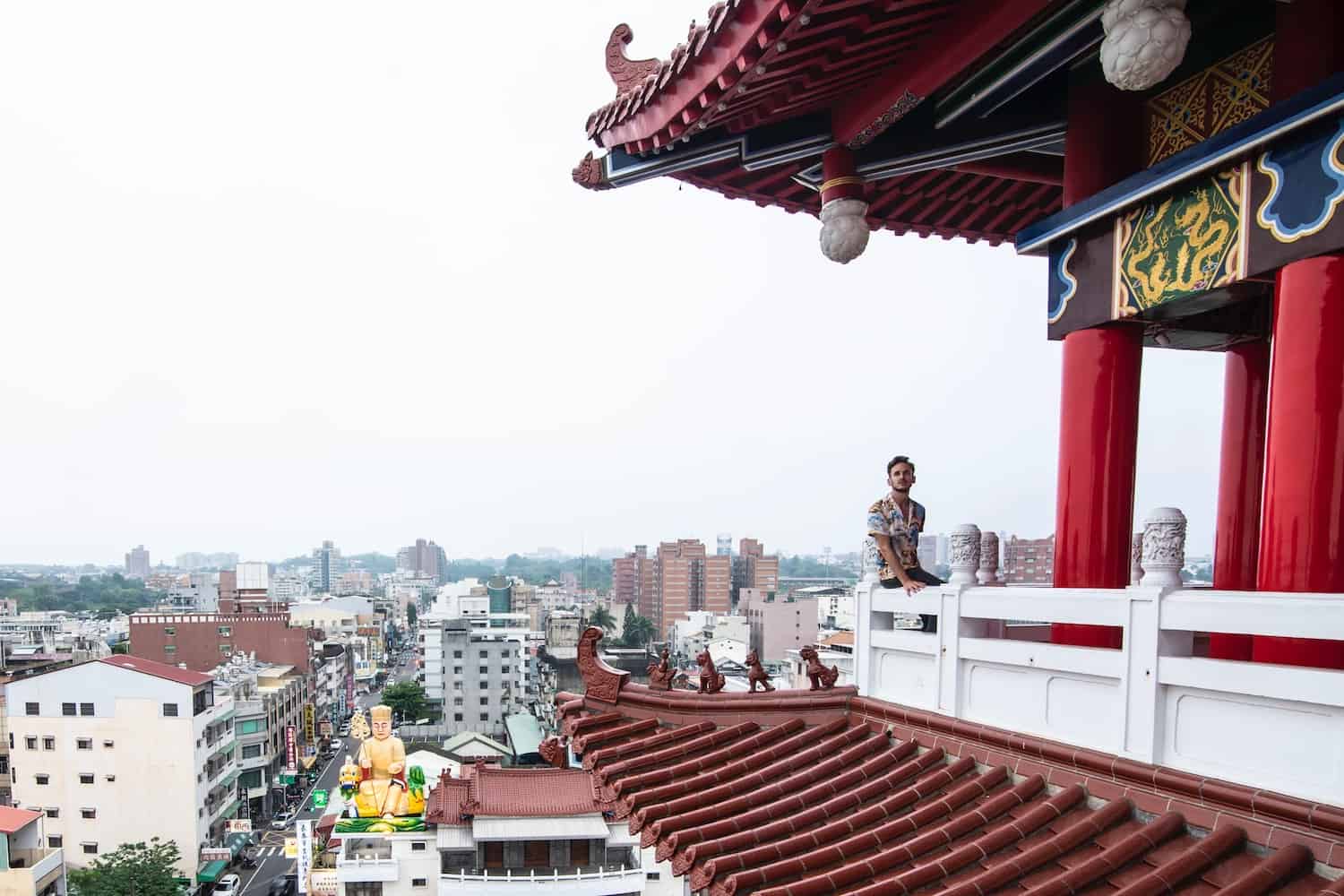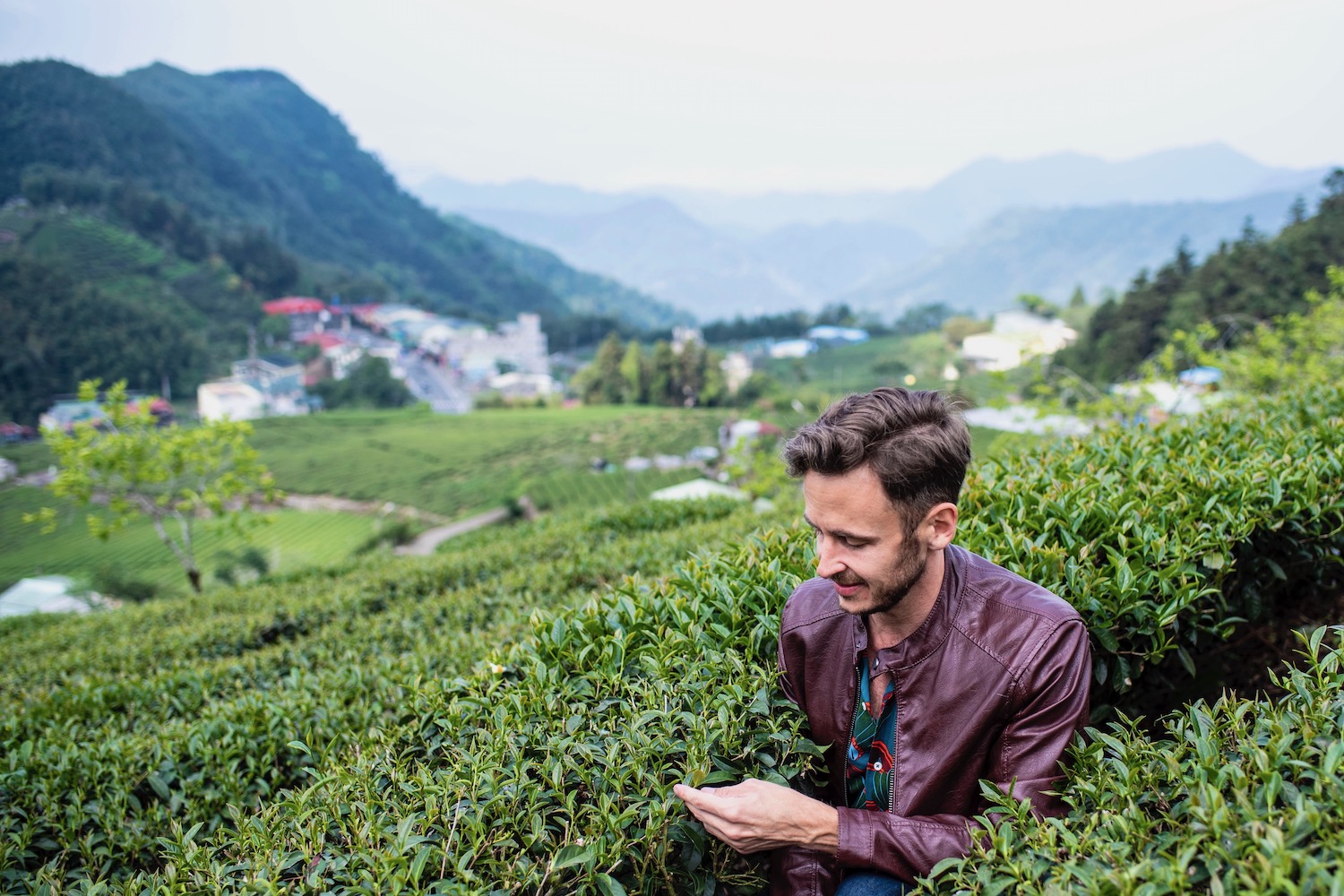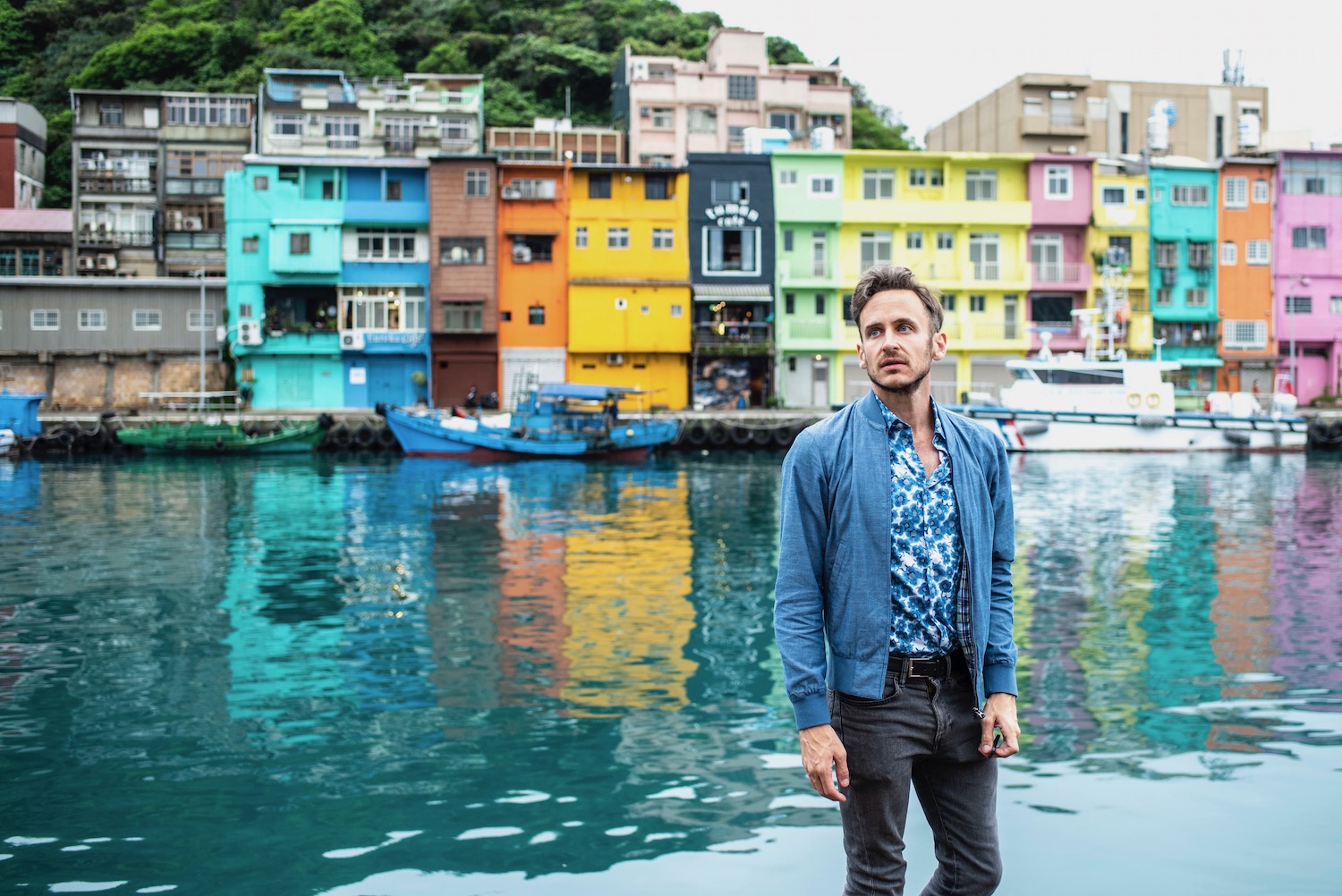Peering out on the turquoise waters of Sun Moon Lake from the 11th or 12th tier of Ci’en Pagoda last Friday, it felt as if things had already gone back to normal. That’s partially because here in Taiwan, for reasons I’ll explain in a few paragraphs, “normal” never really went away.
There was also, of course, clarity from the underlying physical exertion. I’d scurried nearly a kilometer up a hill through a muggy bamboo forest in mere minutes, but my mind—my soul—was thirstier for the perspective I knew awaited me at the precipice (but which I couldn’t quite imagine, not completely) than the hydration my body desperately craved.

It is my hope, over the next 1,500 words or so, to provide all of you with a similar sort of perspective. It’s easy to feel hopeless as we all trudge (we travelers, especially) through the dark and sweltering jungle of coronavirus, but I’m here to tell you: The trail does end.
How I Won Expat Roulette
If you haven’t closely followed the strange trajectory my life has taken since the election of Donald Trump (I was one of the few Americans who made good on my promise to leave when he won), it goes something like this. After having initially moved to Thailand, as much as because I loved the country as because it was the easiest place to set up camp, I quickly tired of various elements of life there.
I’d decided on Taiwan haphazardly (I was literally in the back of a taxi that had made a wrong turn during an apocalyptic Bangkok rush hour), but my instincts turned out to be spot-on. Taipei has proven itself, over the past year, to balance the chaos of Southeast Asia with the order of the Far East (without Japan’s draconian immigration restrictions).
That Taiwan’s badass government has mostly managed to ward off the Wuhan coronavirus, in spite of being 80 miles from China, is a welcome—but totally unforeseen—bonus. I’m safe from the lies and corruption of both the Communist Party and the Republican Party!

5 Reasons Travel Will Go Back to
Normal After Coronavirus
If there’s one thing people need now, it’s an escape
In spite of living in a city where people still eat in restaurants, ride public transportation and leave their homes whenever they please, I get out of town (we can also travel anywhere in the country, so long as we wear a mask on buses and trains) every other weekend. I can’t empathize, apart from phone conversations with friends and family members, with how it must feel to live under lockdown. But I do know that if I need to flee to the high-mountain oolong fields of Alishan from the corona-free paradise of Taipei, y’all must be foaming at the mouth for an escape, whether over international borders or simply across state lines.
Travel has always been somewhat risky
Much of the barrier between where the world is now and going back to normal is fear. Some of this is mis-calibrated, in my opinion (I’ll explain why I feel that way in just a second), but travelers are necessarily amenable to risk. Although there’s only a small chance that your plane will crash or your cruise ship will sink, the possibility of something going wrong (food poisoning, getting scammed, missing your connecting flight and getting stranded) is relatively high. People like us are going to be the first back out there when the coast is clear, because our posture toward the unknown has never a cowering one.
Borders can’t stay closed forever
Although Donald Trump and his pal Viktor Orbán would probably like walls to go up between every country, the free movement of people must resume at some point if the global economy (even if it becomes more regional, or hopefully just less China-centric) is ever to get its groove back. To say nothing of the fact that airlines, cruise lines and other travel-related organizations around the world have power and influence over governments, given that the tourism industry employs one in 10 people on the planet. Please ignore doomsday posts on other blogs (and the deplorable comments underneath them)!
Medicine (and technology) will bridge the gap
The bad news? A coronavirus vaccine, if one is ever created, will take a minimum of 12-18 months to develop, manufacture and deploy to all seven billion Earthlings. The good news? There are many other scientific ways to get us back to normal. These include both therapeutics (initial findings from the latest trials of Gilead’s Remdesivir are promising) and travel-related technologies. Well, some travel-related technologies: Kudos to Emirates for running pre-boarding coronavirus tests; shame on all you hucksters hawking bullshit “virtual tours” that are tantamount to a Google Images search.
Normal wasn’t perfect, but it was as close as we’d been
Speaking of bullshit, you know what I’m sick of? People (largely celebrities and other Marie Antoinettes who’ve never known struggle) spouting off the “we can’t return to normal—normal was the problem.” Many things about the world we all lived in until a few weeks ago can be improved, from expanding freedom of movement, to increasing environmental sustainability, to cutting out cancers like sexism, racism, homophobia and transphobia. But “normal”—capitalism, frankly—was what allowed an ordinary person like me to create an extraordinary life for himself. Fuck you if you don’t want to go back to that world.

A Word to the Chicken Littles
Of course, it’s not just the children of celebrities and the AOCs of the world who are keen for airplanes never to fly again, or who believe that 99 percent of the population should shelter in place for the rest of eternity. A few weeks ago, before I indefinitely logged out of my personal Facebook account, I made a post asking how many people would be cool to stay locked in their homes until a vaccine was available (if one ever is—once again, it’s not guaranteed). I was shocked not so much by how many people were willing to sacrifice for the greater good (which is virtuous), but by how ebullient some seemed at the thought of never being free again.
Whether out of fear of the actual virus or simply an addiction to melodrama, a certain percentage of the population (a much larger one than I imagined) doesn’t really want to go back to normal. These Chicken Littles range from those who genuinely believe the sky is falling, to those who wish it would, to those who simply want to go tell the president (President Trump) to fuck off; a certain number of my fellow Democrats seem to believe that if America beats coronavirus with Orange Oprah sitting in the White House, it’s somehow a bad thing for the country.
(And to the Pollyannas)
Obviously, this is not an endorsement of Donald Trump (although I do believe he will easily win re-election—that’s a topic for another post, and a different platform). To be sure, I’m skeptical that his plan to begin restarting the US economy is any better thought-out than the idiotic statements he made as Aunt Rona was buying up American real estate, the misinformation and malfeasance of Xi Jinping and his lapdog Dr. Tedros notwithstanding. COVID-19 is a fierce and horrifying disease, in spite of a true case fatality rate that is likely an order of magnitude lower than previously thought.
It will take not only much better responses from governments around the world than we’ve seen thus far, but vigilance from every single one of us if we want to get our lives back. That means social distancing and mask-wearing in the short term, and an end to half-assed hand washing and unnecessary body contact for the rest of our days. That means submitting to inconveniences like contact tracing and (hopefully not nasal swab) tests for as long as it takes to rid the planet of the virus. We need to be clear-eyed about what a monumental challenge this will be, and resolute in our commitment to do whatever it takes to overcome it.
The Bottom Line
Travel—and life—will eventually go back to normal. While I’ve cited many reasons this has to happen, it won’t be automatic. The governments of the world will have to become more like Tsai Ing-Wen’s Taiwan, and less like Donald Trump’s America or Xinnie the Pooh‘s China. All of us will have to be vigilant in the changes we make to our individual lives, so that humanity as a whole might become more resilient to this threat.
As travelers, we are in a unique position. We’ll not only to be among the first people to hike through the proverbial forest to the viewpoint we can see in our mind’s eye—we can feel it in our bones—long before we peer out from it. We can shout back to all the others that the coast is clear, and that it’s more beautiful than they could ever imagine.

Robert Schrader is a travel writer and photographer who’s been roaming the world independently since 2005, writing for publications such as “CNNGo” and “Shanghaiist” along the way. His blog, Leave Your Daily Hell, provides a mix of travel advice, destination guides and personal essays covering the more esoteric aspects of life as a traveler.








